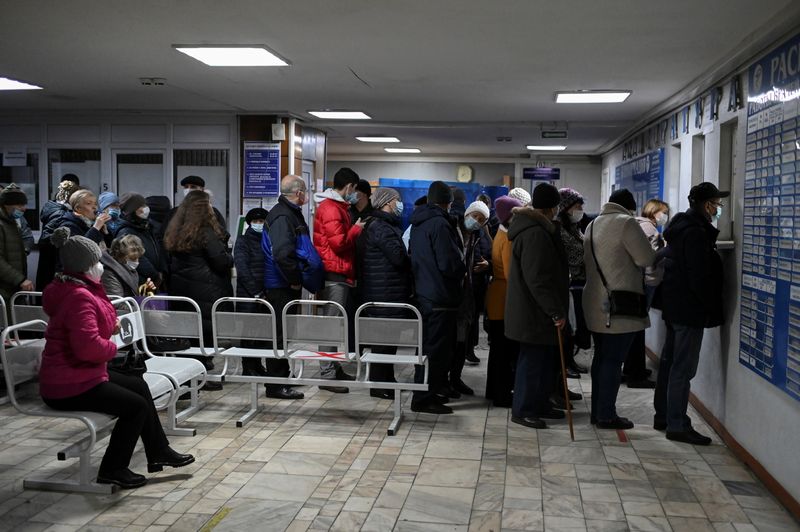MOSCOW (Reuters) – Russia plans to vaccinate more than 400,000 military personnel against COVID-19, Defence Minister Sergei Shoigu said on Friday, as authorities reported a record 27,543 new coronavirus cases.
Russia, which is working on several vaccines against the virus, has seen a surge in infections since September but authorities have resisted imposing lockdowns, relying instead on targeted measures in certain regions.
Indian pharmaceutical company Hetero will manufacture more than 100 million doses of Russia’s Sputnik V COVID-19 vaccine per year under the terms of a deal with Russia’s RDIF sovereign wealth fund unveiled on Friday.
Siberia’s Vector Institute, developing EpiVacCorona, Russia’s second COVID-19 vaccine, said immunity would not be lifelong and that additional vaccinations would be required 6-10 months after the first two shots, and then once every three years.
The Vector Institute was ready to produce up to five million doses of its vaccine per year, Alexander Ryzhikov, head of the institute’s zoonotic infections and influenza department, said on Friday.
Shoigu said 2,500 military personnel had been vaccinated against COVID-19 already, with the total expected to reach 80,000 by the end of the year, news agencies cited him as saying.
In Moscow, between 1,500 and 1,700 patients were being hospitalised with the virus every day, said Deputy Mayor Anastasia Rakova.
“The situation with coronavirus in Moscow remains very tense, today we have recorded a so-called new anti-record,” news agencies quoted Rakova as saying, as infections in the capital surged to a record high 7,918.
Despite the increase, Rakova said there were still around 5,000 hospital beds available and that 12 additional computerized tomography (CT) scan centres had been opened to provide 24-hour assistance to patients.
With 2,215,533 infections, Russia has the fourth-largest number of COVID-19 cases in the world behind the United States, India and Brazil. It has recorded 38,558 deaths related to COVID-19 since the start of the pandemic.
(Reporting by Gleb Stolyarov, Maria Kiselyova and Gabrielle Tétrault-Farber; Writing by Alexander Marrow; Editing by Kim Coghill)



















